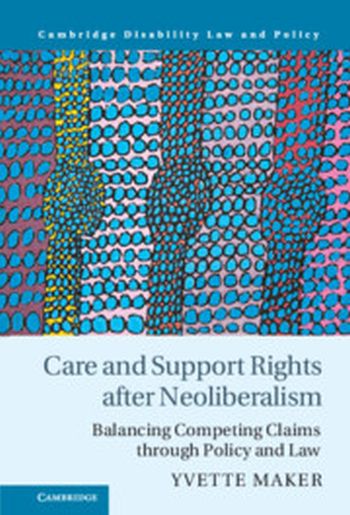
This book offers principles for designing care and support policy to address two persistent sources of tension in the field. The first is the tension between supporting women's unpaid caring and supporting their paid work participation. The second is the tension between carers' claims for support based on the 'burden' of caring and disability rights claims for support for choice and independence for people with disabilities. Policies tend to favor one activity and one constituency over the other. Consequently, individuals' access to resources and choices about how they live are constrained. Using a citizenship rights framework, with insights from human rights law, the principles provide guidance for designing policy and legislation that avoids 'either/or' approaches and addresses the interests of multiple constituencies. Analyses of Australian and English policies demonstrate the value of the principles for developing policy that reduces inequality, responds to 'failures' of neoliberalism, and expands choice for all.